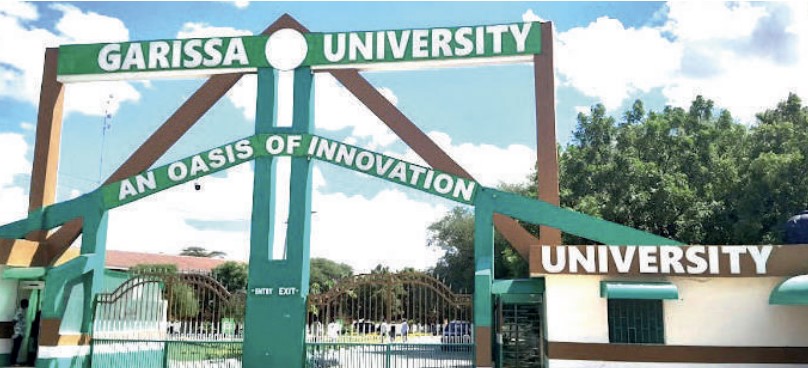
Anew audit has put the management of Garissa University to task for using unapproved systems to collect student tuition fees. Auditor General Nancy Gathungu has reprimanded the varsity for using mobile money “as a convenient revenue collection mode”.
Universities usually require students to pay fees and levies through bank accounts.
The auditor says the Fee Policy 2018 has no provision for mobile money.
She states in the review of Garissa University’s books of accounts for the year to June 30, 2023, that the management had not revised the fee policy to approve mobile money as a mode of fee payment.
“In the circumstances, the regularity of the mobile money as a mode of receiving revenue could not be confirmed,” Gathungu said.
The auditor has also concluded that the varsity erred in operating without a substantive vice chancellor for six years.
The auditor, in the latest review, stated that the situation persisted since 2017.
The varsity got a charter on October 23, 2017, to operate as a full-fledged university but was yet to hire a VC at the time of the audit in February 2024.
“It was noted that the Cabinet Secretary for Education has been granting the Acting Vice Chancellor six-month renewable contracts,” Gathungu said.
The report further reveals that posts of deputy vice-chancellors had also not been filled substantively.
The university advertised the positions of vice chancellor and deputy vice chancellor in July 2019 and interviews were conducted in December of that year.
Gathungu reports that the process was halted by court orders and the matter was still active in the corridors of justice.
The auditor wants the Cabinet Secretary (Education) reprimanded for the continued appointment of vice-chancellors in acting capacity.
“This was in contravention of Section 35 of the University Act, 2012. In the circumstances, the Cabinet Secretary was in breach of the law,” the report reads.
University vice-chancellors chair the institution’s management board and senate and serve as the varsity councils’ secretary. The VC is the chief executive of the university and, hence are the accounting officers of the institutions they head.
After the audit query, the varsity moved to fill the post and appointed Osman Warfa as the chancellor last month.
The position was advertised in March 2024 and interviews conducted in July 2024.
Warfa’s appointment has met some resistance. In the report, the auditor has questioned the payment of more than Sh2.4 million as acting allowances to the vice chancellor and acting deputy vice-chancellor.
PAID FOR THREE YEARS
Thmoney was paid for a period of three years, contrary to the Public Service Human Resource Policies and Procedures, 2016.
The policy requires that acting allowances should not be paid for a period exceeding six months.
“Management was in breach of the law,” the auditor said, further flagging the varsity for failing to appoint a council member.
At the time of the audit, the Cabinet Secretary was yet to appoint a member to replace the retired ones.
The post fell vacant on November 8, 2022, after the initial holder’s term of three years expired.
“The council was not properly constituted. In the circumstances, the management was in breach of the law,” the report reads.
The audit further cast doubt on controls on payroll management saying the systems are weak.
During the year under review, there were two cases of four employees with different payroll numbers but shared tax pin numbers.
There were also two cases of officers sharing identity card numbers.
“The eff ectiveness of the controls
of payroll management could not be
confi rmed,” the auditor said.









